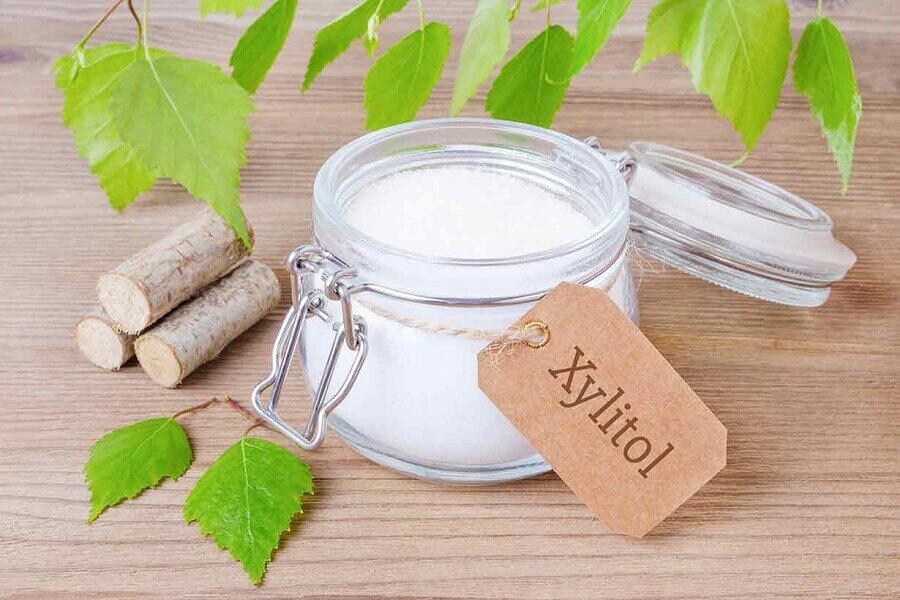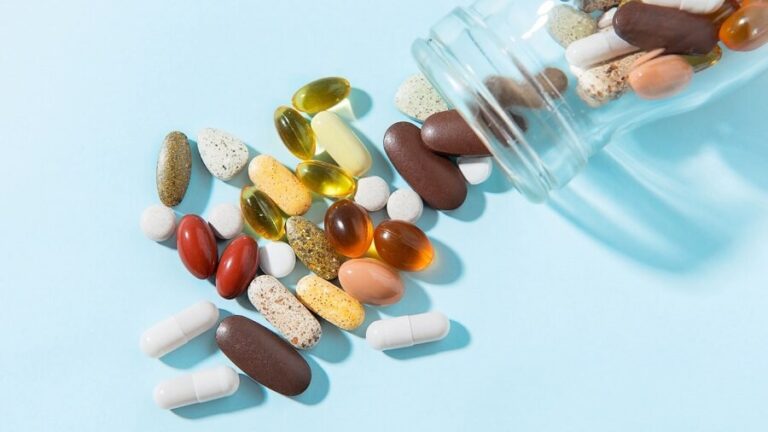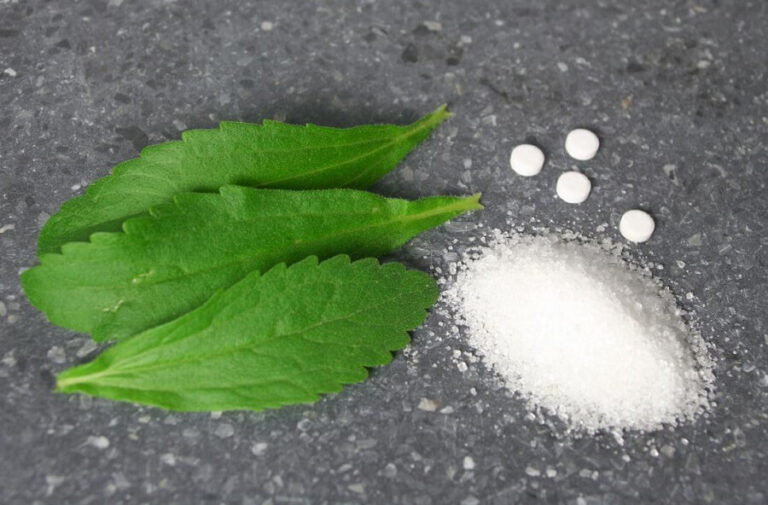Xylitol or also known as birch sugar, is one of the sugar substitutes that has gained more popularity in recent years.
Its taste similar to that of cane sugar, its natural origin and its low glycemic index have made it one of the first options of sweeteners for diabetics .
However, as with all sweeteners, it has raised questions, for example whether it is completely safe for health or not.
This article reviews the evidence for the benefits, contraindications, and side effects of xylitol.
What is xylitol?
Xylitol or also known as birch sugar, is a sugar alcohol . A type of compound with a chemical structure similar to sugars and alcohol, but technically neither of the two.
Sugar alcohols can practically not be digested by the digestive system so they are low in calories, their properties are comparable to those of vegetable fiber .
Xylitol is about 40 percent lower in calories than regular sugar, providing only about 10 calories per teaspoon. In practice, xylitol is a fine crystalline powdered sugar alcohol with a sweet taste.
// Read more: Birch sugar – Benefits and contraindications
Products with xylitol
Xylitol is usually produced in a laboratory from xylose, but it can also be found naturally in the bark of the birch, the xylan plant, and is found in small amounts in some fruits and vegetables.
In the food industry, xylitol is added as a substitute for sugar to make products suitable for diabetics or low in calories. The most common xylitol products are:
- Chewing gum and candy
- Ice creams
- Chocolates
- Unsweetened peanut butter
- Desserts
- Jams
- Cough syrups
- Sprays nasales
- Sports supplements
- Toothpastes and mouthwashes
Xylitol benefits
Xylitol has potential health benefits. First, it can help improve dental health. This is one of the benefits accepted by most dentists and research, as well as it can help regulate blood insulin levels in diabetics and act as a prebiotic. The benefits of xylitol are:
1. Help prevent cavities
Xylitol can help prevent cavities because, unlike sugar, it cannot be metabolized by bacteria in the mouth. This means that it can have beneficial effects on oral flora (microbes that live in the mouth) that are not shared by other sweeteners.
In a study comparing sorbitol (Splenda) with xylitol, sugar alcohol has been confirmed to have a greater anticaries effect. The xylitol group of participants had 27% fewer cavities than the sorbitol group. This experiment also concluded that xylitol positively impacts permanent teeth. (2)
2. Act as a prebiotic
Sugar alcohols can feed the friendly bacteria in your gut, having a prebiotic effect similar to that of dietary fiber.
In particular, studies suggest that xylitol stimulates the growth and metabolic activity of Anaerostipes spp. in the human colon. A microorganism with known health benefits. (3,4)
3. Regulate blood sugar levels
The glycemic index of xylitol is about 7 units, while table sugar is about 60-70 units. Products with a low glycemic index are ideal for regulating blood sugar levels in people with diabetes, prediabetes, and other metabolic problems.
In moderate amounts, xylitol is one of the sugar alternatives that can control blood glucose peaks. The maximum recommended amount to obtain this benefit is about 7-8 g per day. When it comes to losing weight, studies are still inconclusive. (5)
Side effects and contraindications
Xylitol is considered safe for most people. However, in some cases digestive side effects can appear when you consume excessively.
Sugar alcohols can draw water into the intestine or ferment with intestinal bacteria. (6) This can lead to mild side effects such as gas, bloating, and diarrhea.
If you have colon or irritable bowel syndrome, avoid xylitol and other sugar alcohols.
If you have never tried xylitol it is not recommended to ingest more than 10-20 grams per day. After adaptation, an average adult tolerates 20-70 g of xylitol per day with no side effects. For children the maximum recommended amount is 20 grams.
Although studies state that some adults can probably tolerate up to more than 200 g of xylitol per day, provided that the dose is gradually increased and that such amounts are consumed throughout the day and not in just one meal. (6)
However, there is enough evidence to say that if you consume xylitol in moderate amounts, it is likely that you will not experience any serious side effects, both short-term and long-term.
The possible side effects of xylitol are:
- gases
- swelling
- diarrhea
- naúseas
The contraindications of xylitol are:
- people with irritable bowel syndrome
- ulcers and other gastrointestinal problems
- allergies to xylitol
Is xylitol bad for dogs?
Xylitol can be extremely toxic to dogs and other animals.
When dogs eat xylitol, their bodies mistake it for glucose and begin to produce large amounts of insulin.
The dog’s cells then begin to absorb glucose from the bloodstream, which can lead to hypoglycemia (low blood sugar) and even death. (7)
Besides causing hypoglycemia in dogs, other symptoms of xylitol poisoning in animals are: vomiting, low physical activity, seizures. In cats it is considered relatively safe.
In July 2019, the FDA issued a warning to pet owners regarding the dangers of dogs and xylitol. The goal of the release was to sensitize canine pet owners in the hope that they will be more careful when exposing their pets to xylitol products such as gum, candy and toothpaste.
In addition to keeping xylitol gum away from pets, be sure to read your pet’s food labels and never feed leftover food containing xylitol to pets.
Xilitol vs. stevia
The stevia is one of the natural products with greater sweetening power, 200 times more than white sugar. In 2008, the FDA has included it in its list of additives allowed in the food and drug industry.
Both sugar substitutes: xylitol and stevia are low in calories and natural, which is why they are considered the best. In moderate amounts, they have practically no side effects and contraindications, which is why they are considered safe for health.
As a downside, some people tend to notice a slightly bitter taste in stevia. This is due to the presence of compounds found in the plant that interfere with sweets. Manufacturers are currently doing their best to extract them and eliminate the bitter taste. (2)
Most people do well with both stevia and xylitol. However if you do opt for stevia make sure it is not laced with sugar or other caloric sweeteners.
Xylitol Vs. erythritol
Both erythritol and xylitol products are sugar alcohols (also called polyols). The main difference is that the second contains some calories (it is not zero calories like erythritol), but less than sugar.
Xylitol also has a small impact on blood sugar levels, while erythritol has no impact, making it more suitable for diabetics.
Because xylitol can cause diarrhea in some people, especially when used in large amounts, this is one reason why some people prefer erythritol.
Is xylitol allowed on the ketogenic diet?
Another potential benefit of xylitol is that it is considered low in net carbs. So it is allowed on low-carbohydrate diets, such as the ketogenic diet .
While xylitol does provide some carbohydrates and a low number of calories, these should not interfere with your ability to enter ketosis , assuming you are eaten in low amounts.
// Read more: Sweeteners in the ketogenic diet – Which ones are allowed?
ABSTRACT
Xylitol is a low calorie sugar substitute.
Its main health benefits are preventing cavities and regulating blood sugar levels in diabetics.
Consumption of xylitol is considered safe for most people, it has practically no long and short term side effects.
If consumed excessively (more than 20 grams in a single intake) it can cause diarrhea. So one of its contraindications is for people with irritable bowel.
Xylitol is extremely toxic to dogs.
Like other polyols, it is low in calories and net carbohydrates which is why it is allowed on the ketogenic diet.







